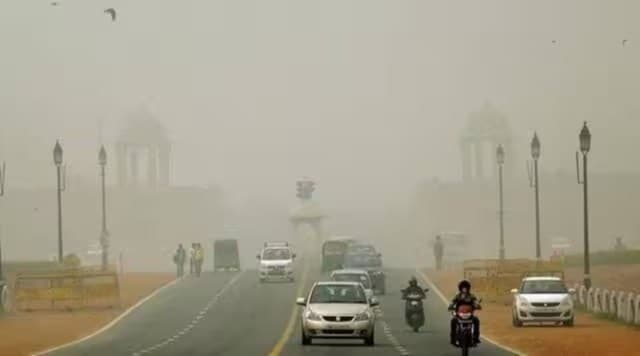Air no longer ‘poor’: Curbs to tackle pollution withdrawn in Delhi
CAQM looked at the overall air quality of Delhi over the past few days, and said that since it has remained below the 200-mark or the “poor” range, the measures can be withdrawn.
 Forecasts for meteorological conditions and AQI also indicate that Delhi’s overall AQI will remain in the “moderate” category in the coming days, said CAQM in a statement. Light rainfall is expected over the weekend as well. (File Photo)
Forecasts for meteorological conditions and AQI also indicate that Delhi’s overall AQI will remain in the “moderate” category in the coming days, said CAQM in a statement. Light rainfall is expected over the weekend as well. (File Photo)With Delhi’s air quality being recorded in the ‘moderate’ range for the past six days, all measures to control pollution in Delhi-NCR, as per the Graded Response Action Plan (GRAP), have now been withdrawn.
The Commission for Air Quality Management (CAQM), a statutory body responsible for forming air pollution reduction strategies for the region and overseeing the implementation, said its sub-committee has made this decision during a meeting convened to review the air pollution situation. CAQM looked at the overall air quality of Delhi over the past few days, and said that since it has remained below the 200-mark or the “poor” range, the measures can be withdrawn.
Delhi’s AQI on Tuesday was recorded at 159 in the “moderate” category. The AQI has not touched the 200-mark since February 21; with the improvement due to an increase in temperature and wind speeds. On Tuesday, Delhi also received traces of rainfall, which helped improve the air quality further. The maximum temperature on Tuesday was recorded at 25.4 degrees Celsius, a degree below normal and the minimum at 12.3 degrees Celsius, normal for this time of the year.
Forecasts for meteorological conditions and AQI also indicate that Delhi’s overall AQI will remain in the “moderate” category in the coming days, said CAQM in a statement. Light rainfall is expected over the weekend as well.
CAQM, however, directed all agencies concerned in the Delhi-NCR region to ensure earnest compliance with its statutory directions, advisories, and orders.
Under GRAP, AQI has categorised actions into four stages: Stage I — ‘Poor’ (AQI 201-300); Stage II — ‘Very Poor’ (AQI 301-400); Stage III — ‘Severe’ (AQI 401-450); and Stage IV — ‘Severe Plus’ (AQI>450). Under the first stage of GRAP, most directions are to enforce existing dust mitigation, waste burning, and construction-related measures. It also includes a ban on construction and demolition in plots that are over 500 sqm in area that have not registered with the respective state governments. Other directions under GRAP I are to minimise power supply interruptions in NCR and ensuring that diesel generator sets are not used as regular source of power supply.







